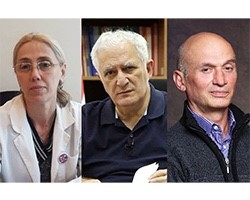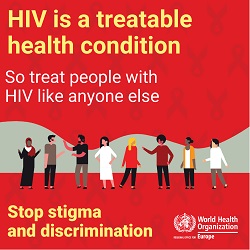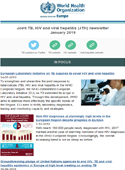HIV/AIDS
Human immunodeficiency virus (HIV) is an infection that attacks the body’s immune system, specifically the white blood cells called CD4 cells. HIV destroys these CD4 cells, weakening a person’s immunity against infections such as tuberculosis (TB) and some cancers. If the person’s CD4 cell count falls below 200, their immunity is severely compromised, leaving them more susceptible to infections. Someone with a CD4 count below 200 is described as having AIDS (acquired immunodeficiency syndrome).
Read more about HIV/AIDS in the WHO European RegionTop story
 Integrated screening for infectious diseases: a success story from Georgia
Integrated screening for infectious diseases: a success story from Georgia
Testing simultaneously for several infectious diseases in primary health care settings is feasible and can help to bring down the burden of chronic hepatitis C, HIV, sexually transmitted infections (STIs) and tuberculosis (TB) in countries in eastern Europe and central Asia, results from Georgia and elsewhere in the WHO European Region show.
World AIDS Day 2020

World AIDS Day on 1 December brings together people from around the world to raise awareness about HIV/AIDS and demonstrate international solidarity in the face of the pandemic.
Download campaign materialsPublications
 Compendium of good practices in the health sector response to HIV in the WHO European Region
More publications
Compendium of good practices in the health sector response to HIV in the WHO European Region
More publications
Key resource
 Action plan for the health sector response to HIV
Action plan for the health sector response to HIV
WHO European Region
Go to the Action plan




